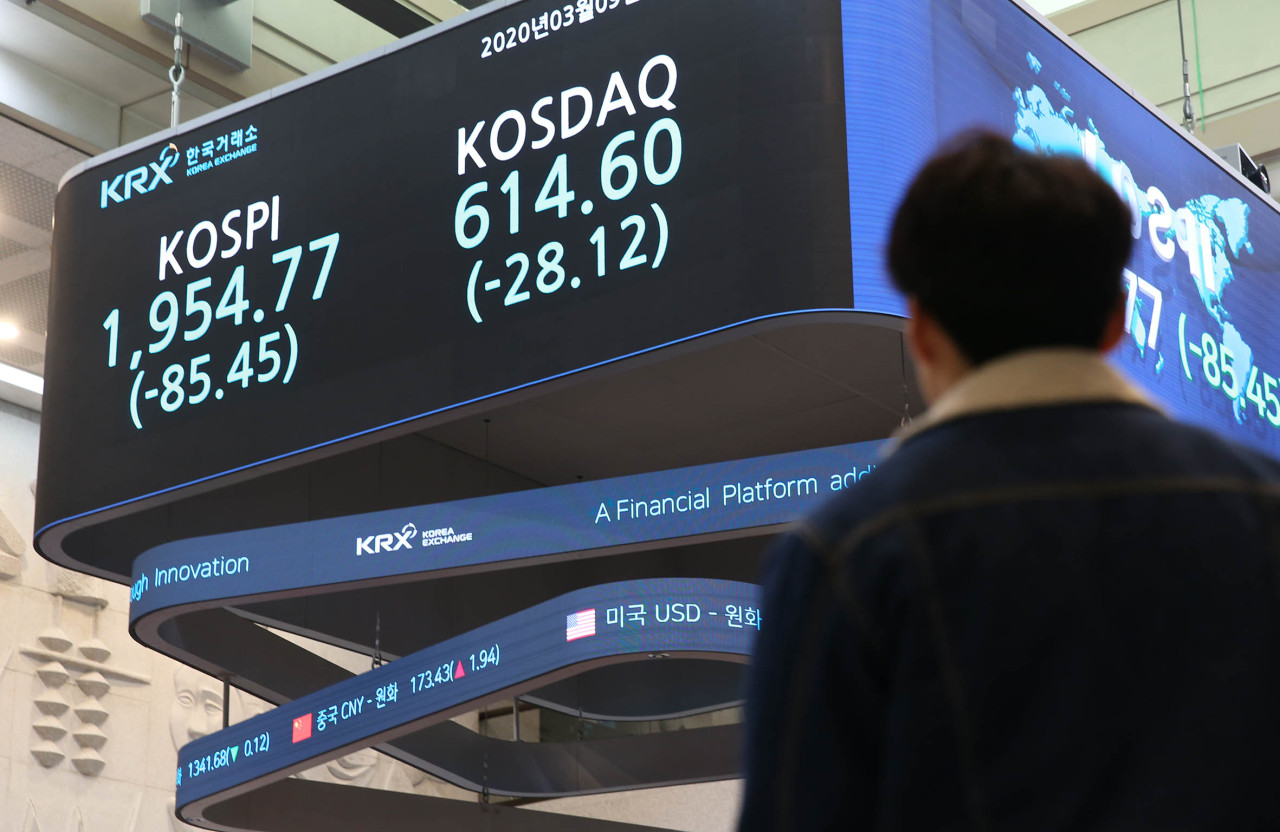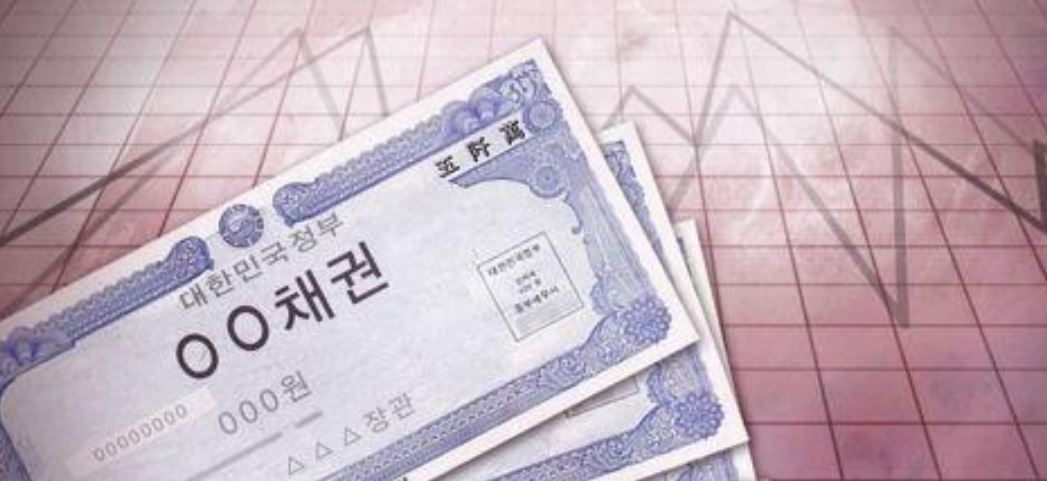Renewed coronavirus fear wobbles Korea’s financial markets, volatility increases
Stock market sees largest drop in 17 months, 3-year Treasurys yield tumbles below 1% for first time
By Jie Ye-eunPublished : March 9, 2020 - 17:31

Hit by renewed coronavirus fears and investors’ fatigue, South Korea’s financial market took a big hit Monday, with stock and bond prices plunging, and the local currency also getting weaker as foreign investors exited in droves.
The main bourse Kospi dipped 4.2 percent from the previous session’s close, the largest drop in 17 months. The index drifted to the lowest since August 2019, when the volatility-prone market was rattled by a trade war between the US and China. Losers on the bourse outnumbered gainers 866 to 33.
Solely on Kospi, foreign investors carried out a record-high net sales of stocks worth 1.3 trillion won ($1.1 billion) since 1999, while retail investors were bargain hunting by net buying 1.2 trillion won worth of stocks, the highest in nearly nine years.
The development board Kosdaq also tanked 4.4 percent, with losers outnumbering gainers 1,242 to 79.
But analysts said the downtrend here will give way to expectations for the bailout plan in China and Europe later this week.
“Markets will remain choppy for a while as the coronavirus continues to spread outside of China and Korea to Europe and the US,” wrote Eric Lee, strategist at Daishin Securities.
“On the bright side, we see the downside support for global equities getting firmer on stepped-up policy coordination efforts and fiscal measures by governments around the world.”
The local currency closed at 1,204.20 won against the greenback -- down 11.90 won from the previous session’s close.
Treasury yield rates also tumbled below 1 percent for the first time, raising alarm on market volatility.

The three-year Treasurys, which move inversely to prices, slipped 4 basis points to 1.038 percent at the closing. The yield plunged to 0.998 percent immediately after the market opened. The five-year government bond also dipped 5.5 basis points to 1.127 percent, falling further behind the nation’s base rate of 1.25 percent.
The 10-year Treasurys closed at 1.286 percent -- contracting 8.4 basis points from the previous session’s close, while the 20-year and 30-year state bold yields fell 10 basis points and 10.5 basis points to 1.334 percent and 1.350 percent, respectively.
Market analysts attributed the Korean bond yields’ decline as the number of COVID-19 virus confirmed cases has been constantly increasing, sparking fears of a global pandemic, investors tend to prefer low-risk assets.
“Amid the strengthening cooperative fiscal policies around the globe, interest rates have lowered both in and out Korea. The Bank of Korea also hinted at a possible rate cut (before April),” said Kim Min-jung, an analyst at Hanwha Investment & Securities. “There is a high possibility that the rates will fluctuate repeatedly to increase volatility.”
While local analysts have conflicting outlooks on the nation’s bond yields defending the psychological Maginot Line of 1 percent, they focus on the central bank’s feasible dovish stance on a rate cut.
Ahn Ye-ha, an analyst at Kiwoom Securities said that the yield on three-year Treasurys will likely be maintained at the 1 percent mark.
“As the rapid increase of COVID-19 virus patients globally, three-year Treasurys may temporarily dip to 1 percent, but it won’t be prolonged,” she said.
“To bring the yield below the mark, either the number of local novel virus infection cases has to increase outside of Daegu and North Gyeongsang Province, or the BOK’s should become hawkish,” Ahn added, while predicting the low possibility of the central bank’s sudden rate cut this month.
On the contrary, another analyst forecast that the nation’s bond yields will hit the zero percent rage this year, due to the central bank’s rate cut as other major nations such as the US, Australia, `
“Considering the two possible rate cuts, the three-year Treasurys and the 10-year Treasurys may tumble as low as 0.85 percent and 1.10 percent, respectively.”
By Son Ji-hyoung and Jie Ye-eun
(consnow@heraldcorp.com) (yeeun@heraldcorp.com)

















![[KH Explains] Hyundai's full hybrid edge to pay off amid slow transition to pure EVs](http://res.heraldm.com/phpwas/restmb_idxmake.php?idx=652&simg=/content/image/2024/04/18/20240418050645_0.jpg&u=20240419100350)

![[Today’s K-pop] Zico drops snippet of collaboration with Jennie](http://res.heraldm.com/phpwas/restmb_idxmake.php?idx=642&simg=/content/image/2024/04/18/20240418050702_0.jpg&u=)